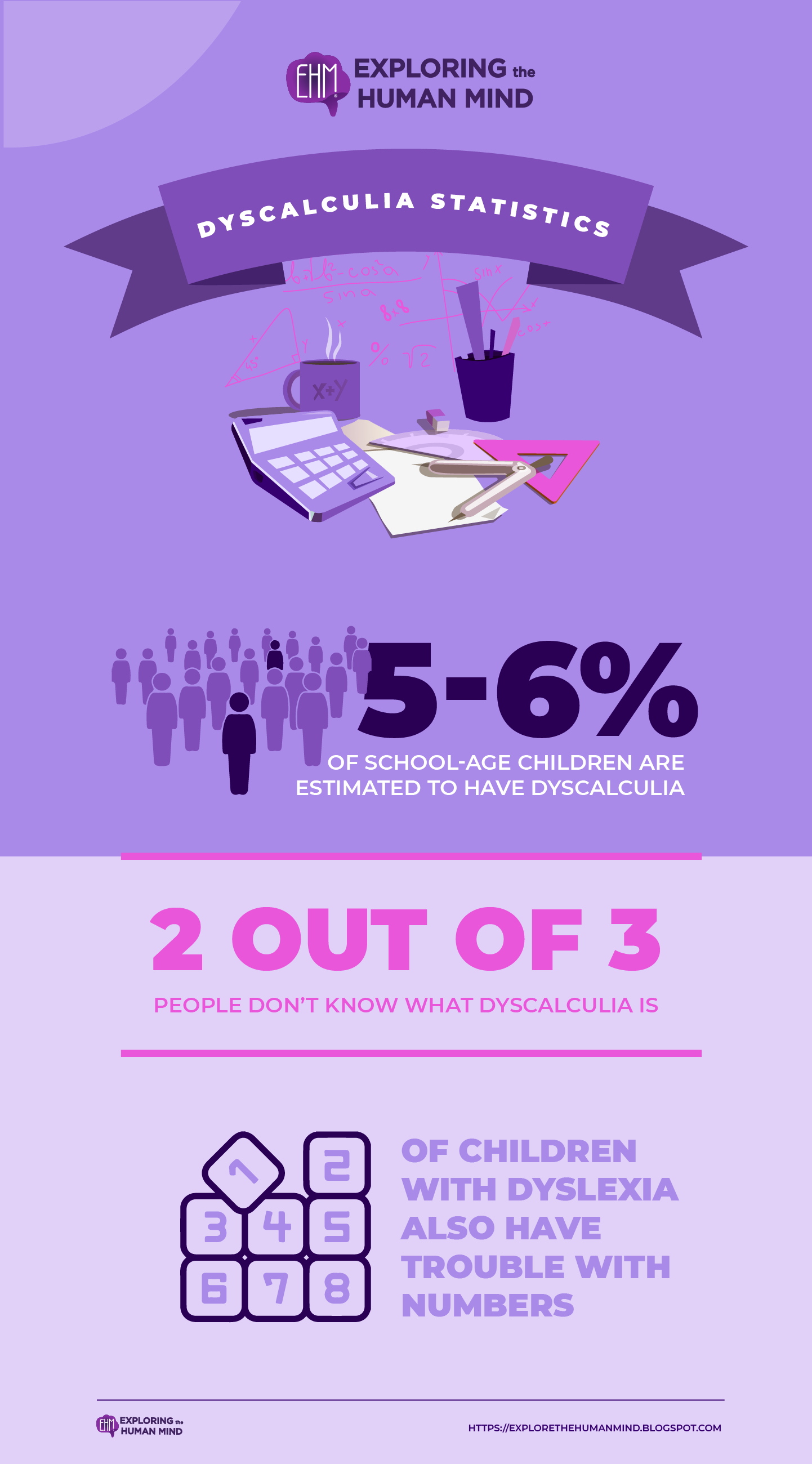Dyscalculia Introduction
Dyscalculia is a term used to describe specific maths learning disabilities. Students may struggle to understand the real-world meaning of numbers, recall basic math facts, or solve simple problems.
Dyscalculia is a learning disability that impairs a person's ability to comprehend numerical and mathematical information. People with dyscalculia have difficulty with numbers and math because their brains do not process math concepts as well as those who do not have the disorder. Their difficulties, however, do not imply that they are any less intelligent or capable than those who do not have dyscalculia.

vectors by Freepick; graphic design by Vadot
Symptoms of this disorder typically appear in childhood, particularly when children learn basic math skills. Many adults, however, have dyscalculia and are unaware of it. When asked to do math, people with dyscalculia frequently experience mental health issues such as anxiety, depression, and other distressing feelings.
Dyscalculia can also manifest itself later in life. This type, known as acquired dyscalculia, can occur at any age. This is more common for other reasons, such as a medical condition.
Dyscalculia can occur at any age, but it is most common in children during their first few years of elementary school.
Reference:
Churchillstl Design. (2017, February 17). Churchillstl Design. https://www.churchillstl.org/learning-disability-resources/dyscalculia/
Clinic, C. (2022). Dyscalculia: What It Is, Causes, Symptoms and Treatment - Cleveland Clinic. Cleveland Clinic. https://my.clevelandclinic.org/health/diseases/23949-dyscalculia#:~:text=Dyscalculia%20is%20a%20learning%20disorder,number%2Drelated%20skills%20and%20understanding.






Comments
Post a Comment